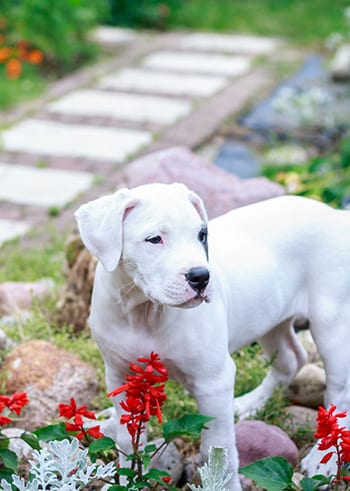Pet Poison Control & Prevention in Lakeland, FL
At Parkway Veterinary Emergency Clinic, we hope that you don’t ever find yourself in a situation where you need our services. However, if you do, we’re here for you. As an emergency veterinarian, we’ve seen a lot of pet emergencies, many of which could have been avoided. While it’s not possible to prevent every emergency, there are steps to take to reduce and minimize your pet’s chances of getting into things they shouldn’t. Our pet poison control and prevention tips can help!

Tips for Preventing Pet Poisoning
Cats and dogs (and especially puppies!) are notorious for getting into things that could harm them. Their curiosity knows no bounds, so it’s up to us to set boundaries and reduce situations in which they can hurt themselves. Here are some tips to do just that:
- Store your medications in a tightly sealed container and place them in a cabinet or closet out of paw’s reach.
- When you use household cleaners, be sure to follow the directions. This likely means keeping your pet out of the area until the cleaner is dried or dissipated.
- Clean up residue and spills as soon as they happen. Wipe counters after chopping onions and garlic, clean up the anti-freeze you spilled in the garage, and sweep up crumbs in the kitchen! Antifreeze, certain foods, and some beverages are highly toxic to pets and can cause serious issues, even if your pet licks up a small bit!
- Avoid sharing human food with your pet! While there are some foods that are safe for them to eat, many are not—especially when we cook them with spices, oils, and other dangerous items for pets!
Top Pet Poisons to Avoid
Wondering what exactly is toxic to your cats and dogs? Here’s list of some of the top toxins we see at our emergency clinic:
- Human medications. Anti-inflammatory medications, antidepressants, acetaminophen (found in Tylenol and other pain relief meds) and stimulants
- Chocolate
- Rodenticides
- Grapes and raisins
- Fertilizers
- Xylitol (a common sugar substitute found in sugar-free gum and candies)
- Onions and garlic
- Nuts
Keep all these items well out of paws’ reach!
If you think your pet has ingested any of the toxic substances listed above, or you’re concerned about their health for any reason, please call our emergency vets and staff at (863) 665-3199!
